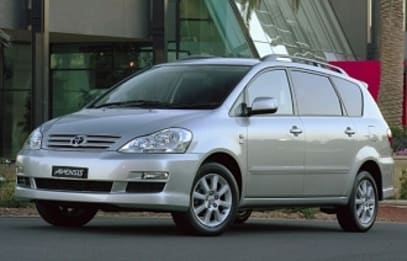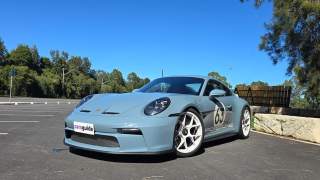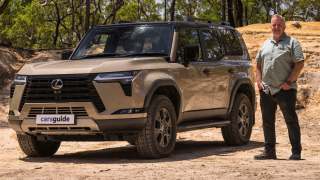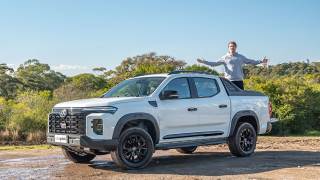
Used Toyota Avensis review: 2001-2009
- Toyota Avensis
- Toyota Avensis 2004
- Toyota Avensis 2005
- Toyota Avensis 2009
- Toyota Avensis 2007
- Toyota Avensis 2006
- Toyota Avensis 2003
- Toyota Avensis 2001
- Toyota Avensis 2002
- Toyota Avensis 2008
- Toyota Avensis Reviews
- Toyota Reviews
- Toyota People mover Range
- Toyota Wagon Range
- People mover
- Wagon
- Toyota
- Used Car Reviews
- Buying tips
- 7 seater

Small families of two or three kids aren't a problem, the choices are many, but once the brood grows beyond that the choices rapidly diminish. There are a few wagons that will accommodate seven, but it's really a squeeze. They might be acceptable if you only need to carry seven on occasion, but if you need to do it regularly, like most families do, you're left looking at peoplemovers.
When they first began to appear on the market 30 or so years ago peoplemovers were effectively crudely converted commercial vans. They weren't very safe, they certainly weren't very comfortable, and they made their occupants feel like second-class citizens. Those days are long gone thankfully and today's peoplemovers, like the Toyota Avensis Verso, are much more civilised.
MODEL WATCH
Unlike most of its van-derived predecessors the front-wheel drive Toyota Avensis Verso was based on a car, the mid-sized Avensis sold in Europe. Given the baggage of history it was forced to carry the Avensis Verso was something of a revelation; it really wasn't that bad to drive.
Compared to its primitive forebears it was easy to drive and had quite respectable road manners. There was some body roll, but it wasn't too bad; it understeered, but that too wasn't unacceptable. Overall it followed the driver's instructions reasonably faithfully and did its job quite well.
Initially there was a 2.0-litre engine, but that was replaced in 2003 with a 2.4-litre unit. The 110 kW 2.0-litre unit struggled with the mass of the Avensis Verso, particularly when loaded to the gunnels with kids and their gear.
With 115 kW at 5700 revs and 211 Nm at 4000 revs the extra grunt of the later 2.4-litre double overhead camshaft engine was a better choice. The transmission choices were a smooth-shifting five-speed manual or a four-speed auto.
It's inside that the Avensis Verso came into its own, with a clever seating arrangement that allowed seats to be moved around to suit the need to carry people or cargo. The centre seat was fine for two, but a little squeezy for three, and the use of a lap belt in the centre position wasn't ideal.
At the back the third seat was a little cramped for adults, but would do the job for three kids. If not needed for people the second and third seats could be folded flat to open up the area to carry cargo, or sports gear, or whatever might be needed.
The interior was well finished and durable, important when you carting kids around, and it was well equipped with cup holders, bottle bins, hooks for grocery bags, cubby holes and other handy little touches for everyday convenience.
Toyota offered two models, the GLX and the Ultima. The GLX came standard with dual air-conditioning, remote central locking, power windows and mirrors, and a six-speaker CD sound system.
A step up the Ultima was rewarded with alloy wheels, fog lamps, leather-trimmed steering wheel, roof racks and a rear spoiler. A facelift in 2003 brought new headlamps and a new grille, new bumpers and new rear lights. The 2.4-litre engine replaced the 2.0- litre unit.
IN THE SHOP
Toyota might not make the most exciting cars to drive, but if it's reliability that gets you excited then it's the brand for you. The company has an enviable reputation for build quality and reliability, but it's a well-earned one, and the Avensis Verso is living up to expectations.Little is being reported from the field, the things that are spoken of are to be expected through simple wear and tear, like brakes, tyres, wipers etc. The good news is that there's a chain driving the camshaft to there's no need for servicing as there is on other makes.
Sound engineering and decent build quality can't make up for a lack of maintenance, so check for a service record to ensure your chosen car has been regularly serviced.
ON THE ROAD
Like all Toyotas the Avensis Verso was competent at everything without being brilliant at anything. It rode comfortably, steered well, handled predictably, braked securely, and performed with enough gusto not to be an embarrassment. And like all Toyotas it was well built and nicely finished, two attributes that underpin the brand's popularity.
IN A CRASH
While the dynamics of the Avensis Verso were quite good for a peoplemover, they were still a compromise when compared to a regular passenger sedan.
It wasn't particularly responsive or agile when put to the test in an emergency, but standard ABS anti-lock brakes and electronic brakeforce distribution aided active safety.
On the passive safety front there were dual front airbags and seat belt pretensioners on all models, while the Ultima also boasted side front airbags.
AT THE PUMP
Physical size and mass work against a car like the Avensis when it comes to fuel consumption. Road testers reported the average fuel consumption at 12.0-12.5 L/100 km.
OWNER'S SAY
Don Taylor and his family bought their 2001 Avensis in 2002, having previously driven a Mazda 1300, two Golfs, a Nissan Prairie, a Mitsubishi Nimbus and two Toyota Taragos. They have since driven over 200,000 km in the Avensis and apart from tyres, a battery and a windscreen, the only things they have replaced or repaired are the tailgate struts.
The versatility of the seating/load carrying arrangements, from one seat to seven, with every number in between is particularly appealing to them. With only two people in the car, there is a huge, flat-floored cargo space. The storage area under the floor holds a great deal and has proved very useful.
They also appreciate the way the middle seat can be slid into a position that makes it possible to carry seven adults in reasonable comfort. Many of the other peoplemovers that they have looked at over the years have not really been designed to put adults or even teenagers in the third row.
Despite the impressive people/cargo capacity, the Avensis is not a particularly large car to drive, unlike some of the other peoplemovers available. They have found it economical, reporting 10 L/100 km around town and 8 L/100 km on the highway. On a recent trip they averaged 7.5 L/100 km over a distance of 4000 km, which Don says was "very pleasing."
LOOK FOR
. Overall competence.
. Modest performance.
. Smooth ride.
. Predictable handling.
. Flexible interior.
. Good build quality.
THE BOTTOM LINE
Highly rated peoplemover is a well-built, reliable and solid performer for the family.
RATING
75/100
Pricing
| Year | Price From | Price To |
|---|---|---|
| 2009 | $6,600 | $10,230 |
| 2008 | $6,490 | $10,120 |
| 2007 | $6,050 | $9,460 |
| 2006 | $5,060 | $8,140 |
| 2005 | $4,400 | $7,260 |
| 2004 | $4,070 | $6,710 |
| 2003 | $3,850 | $7,700 |
| 2002 | $4,290 | $7,040 |
| 2001 | $3,740 | $6,160 |
Pricing guides
Range and Specs
| Vehicle | Specs | Price* | |
|---|---|---|---|
| Verso GLX | 2.4L, ULP, 4 SP AUTO | $6,600 – 9,240 | 2009 Toyota Avensis 2009 Verso GLX Pricing and Specs |
| Verso Ultima | 2.4L, ULP, 4 SP AUTO | $7,260 – 10,230 | 2009 Toyota Avensis 2009 Verso Ultima Pricing and Specs |
$8,490
Lowest price, based on 4 car listings in the last 6 months










